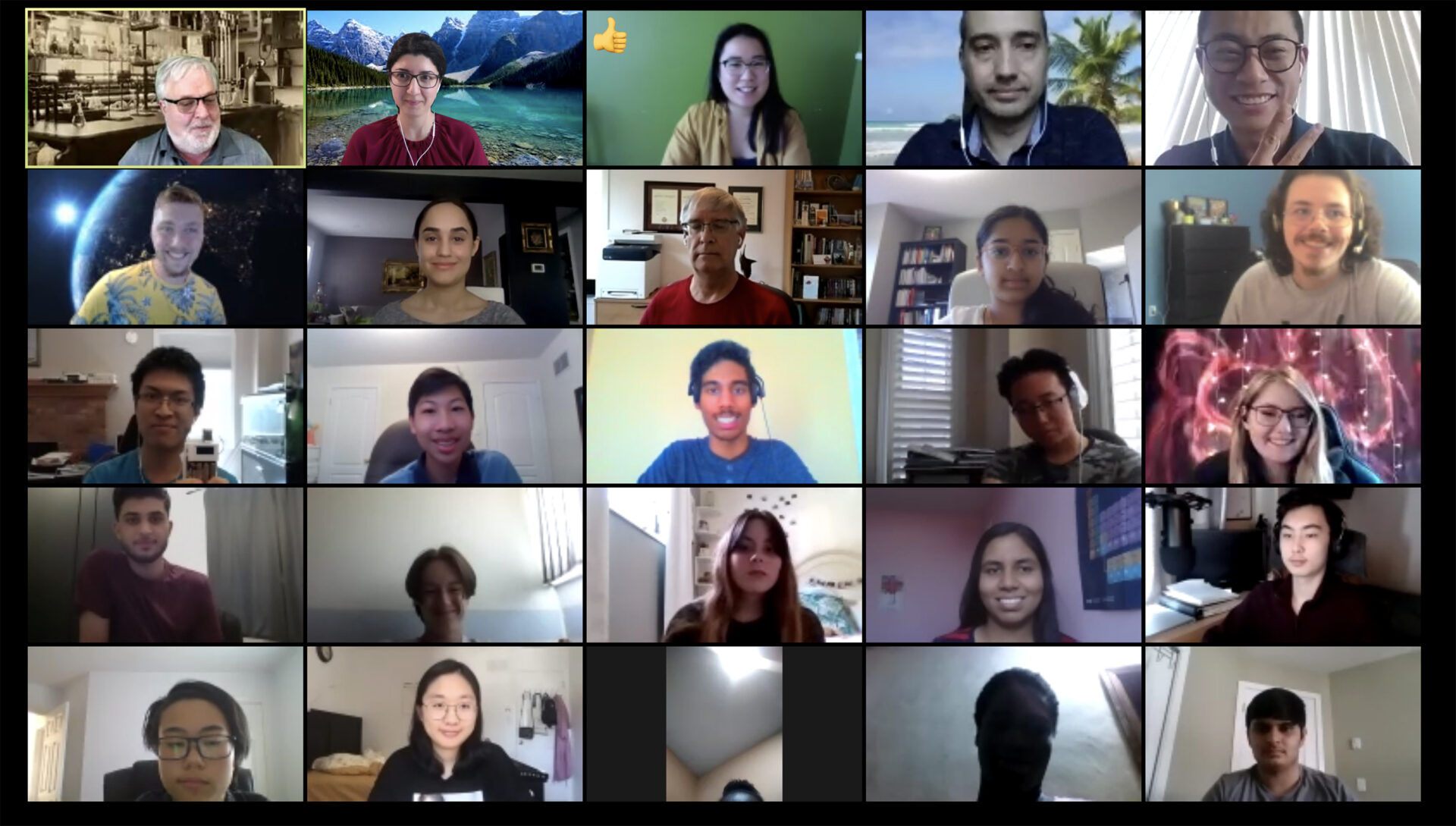Virtual STEM Entrepreneurship Bootcamp 2020

Young innovators attend virtual bootcamp to help bring STEM projects to market
Ten bright minds from Canada’s science fair community alongside with 17 other students wrapped up an intensive four-day bootcamp, where they learned about bringing their innovation to market.
Held virtually, from August 11-14 the fourth annual STEM Entrepreneurship Boot Camp took place, run by the BEST Program, Lassonde School of Engineering and York University, in partnership with Youth Science Canada (YSC). The event allowed students to learn and apply current entrepreneurship best practices to turn their projects into viable businesses.
The class of 2020 includes 10 ribbon recipients from YSC’s first online STEM Fair, held April and May of this year.
“Bergeron Entrepreneurs in Science and Technology (BEST Program) at Lassonde School of Engineering is one of the most innovative programs in the country,” said Reni Barlow, executive director at Youth Science Canada. “Over the years, it has helped thousands of students of all ages and backgrounds bring new solutions to market to help Canadians lead better lives and bring about a better world. We’re extremely grateful for our partnership with York University and admire their commitment to young Canadian entrepreneurs.”
Held exclusively via web conference, the program allows participating students to meet virtually with fellow entrepreneurs, network with former BEST graduates and experience the process of transforming their science projects into a viable business, designed, developed and run by BEST Faculty and resources at York University from the Lassonde School of Engineering.
Projects included several inventive proposals – from improving recycling of plastics by designing a cheap near-infrared device to sort the seven types of plastics, using machine-learning to distinguish them (Edward Xiong), to using machine learning-based classification system to identify skin lesions (Teagan Robinson).
“Over the years, we have guided many entrepreneurs on how to pitch and secure funding for their ventures,” said Andrew Maxwell, director of the BEST program. “The bootcamp is a great way for us to work with students from Canada’s STEM fair community – to demonstrate how innovations in science and technology can be harnessed to solve some of the world’s most pressing challenges. Opportunities like these help young innovators gain new skills and essential mentorship to grow as entrepreneurs and to learn how to develop their new ventures successfully.”
The bootcamp is open to students in grades 9 to 12, incoming Lassonde students and finalists from YSC STEM events. The BEST program also offers the BEST Entrance Award of $1,000 to bootcamp participants who will be attending the Lassonde School of Engineering.
on August 14, 8 teams pitched their projects to the judging panel, Dr. Rebecca Pillai Riddell, Dr. Terry Sachlos, Jimmy Chan, and the top three teams were announced as following:
- Dermexplore (Haarini Suntharalingam, Andrew Pun, Teagan Robinson, Ethan Li, Fahad Faizi):
The skin lesions project is the amalgamation of 3 projects focused on improving the accuracy and efficiency of diagnosing skin lesions. They used of a specific biomarker to diagnose melanoma, polarized light to illuminate lesions better, and improving the AI used to detect skin lesions. Although these projects vary in nature, each project served as a different function of a potential device that could enable improved diagnosis. They are creating new ideas that can potentially be a game-changer for the future of skin lesion diagnosis! - Infrared Sorting (Edward Xiong, Edward Yang and Richard Bai):
The team Infrared Sorting worked on the problem of sorting 7 types of plastics using machine learning to distinguish them in recycling plants. This device will be mounted on a conveyor belt to automatically sort the plastics in their respective categories, saving a lot of unsorted plastics and creating a huge impact on the recycling industry. - Biosurface treatment (Harini Karthik, Selena Ng and Echo Chen):
The team Biosurface treatment worked on a method of coating surfaces to reduce drag. This has many applications including use on solar panels, vehicles, and swimsuits. Their design is environmentally-friendly, efficient, and biodegradable! This is a huge advancement in Computational Fluid Dynamics.
This year’s participants are all recipients of a Ted Rogers Innovation Award, they are Hubert Chan (Ontario), Samantha Glenday (Manitoba), Amanda Hardman (Alberta), Harini Karthik (Quebec), Andrew Pun (Ontario), Teagan Robinson (New Brunswick), Tienlan Sun (British Columbia), Haarini Suntharalingam (Ontario), Edward Xiong (Ontario) and Robin Yadav (British Columbia).
All ribbon recipients from the 2020 YSC Online STEM Fair, and the 10 projects participating in the STEM Entrepreneurship Boot Camp, can be viewed at makeprojects.com/ysc.